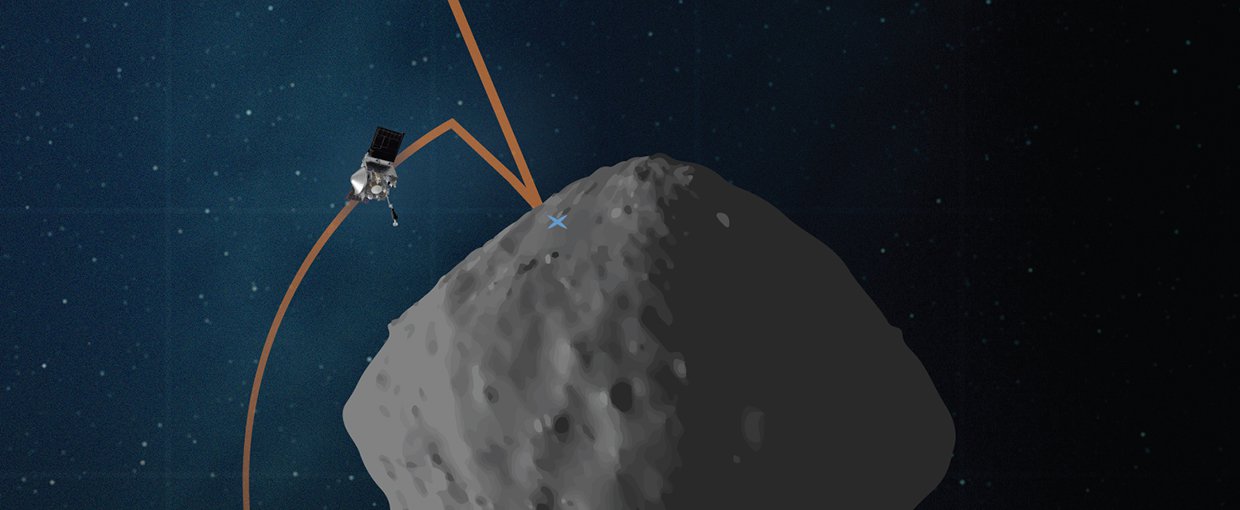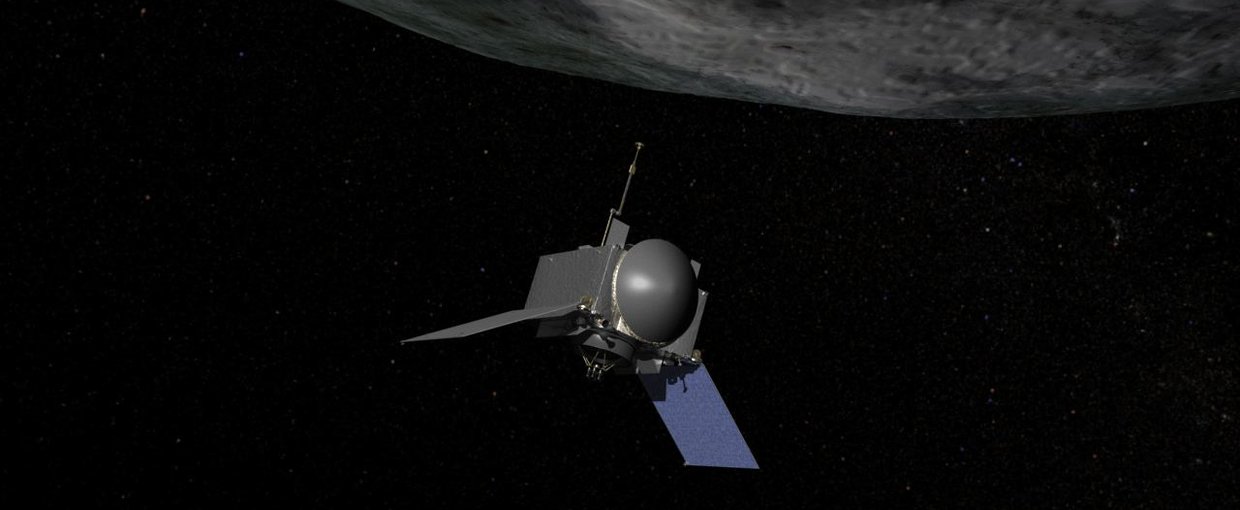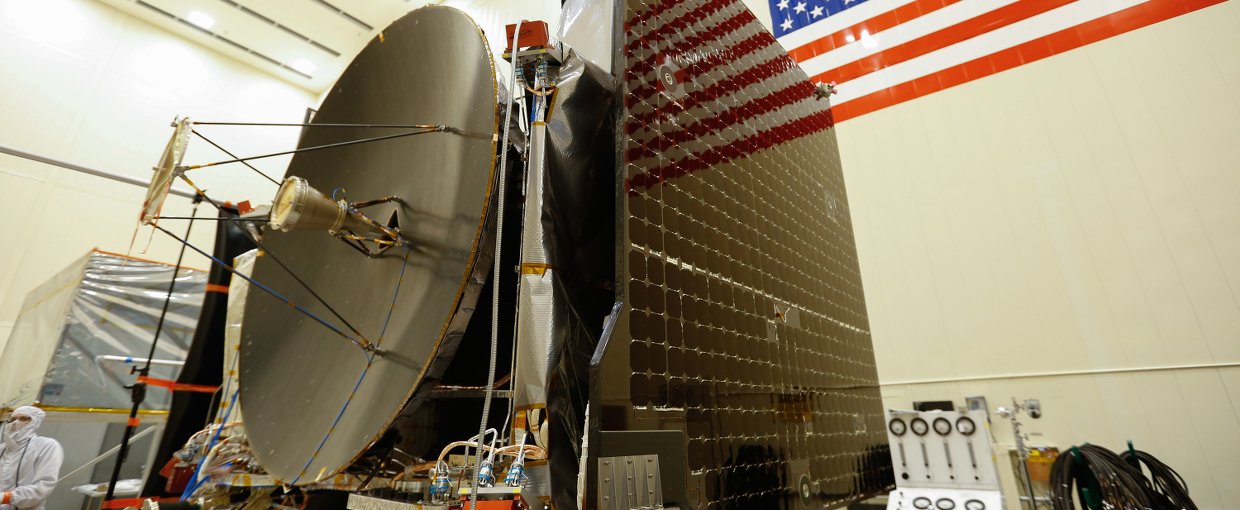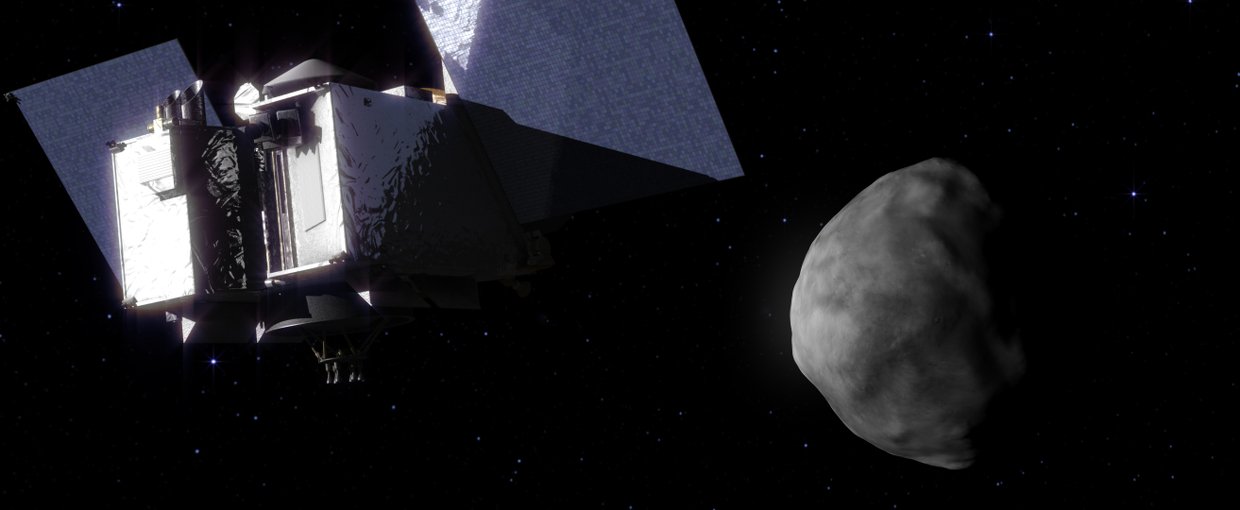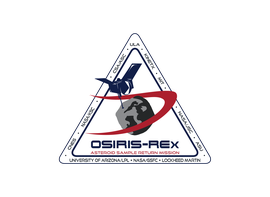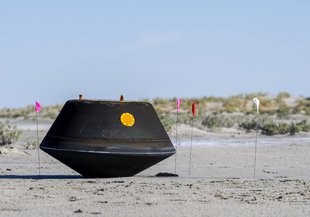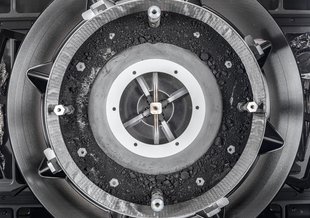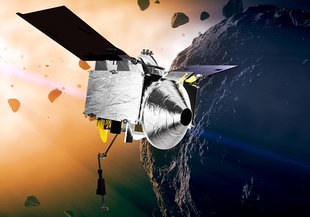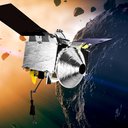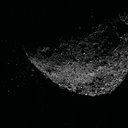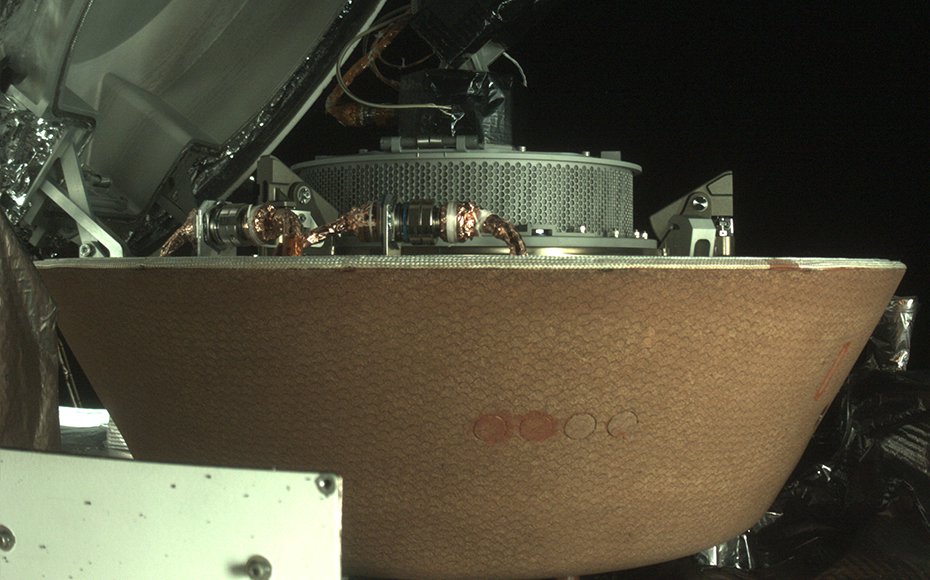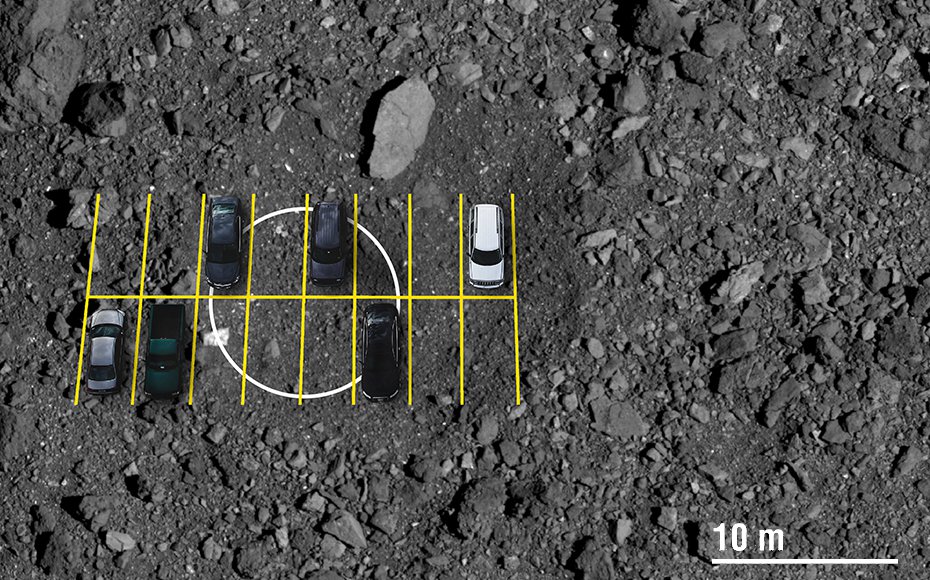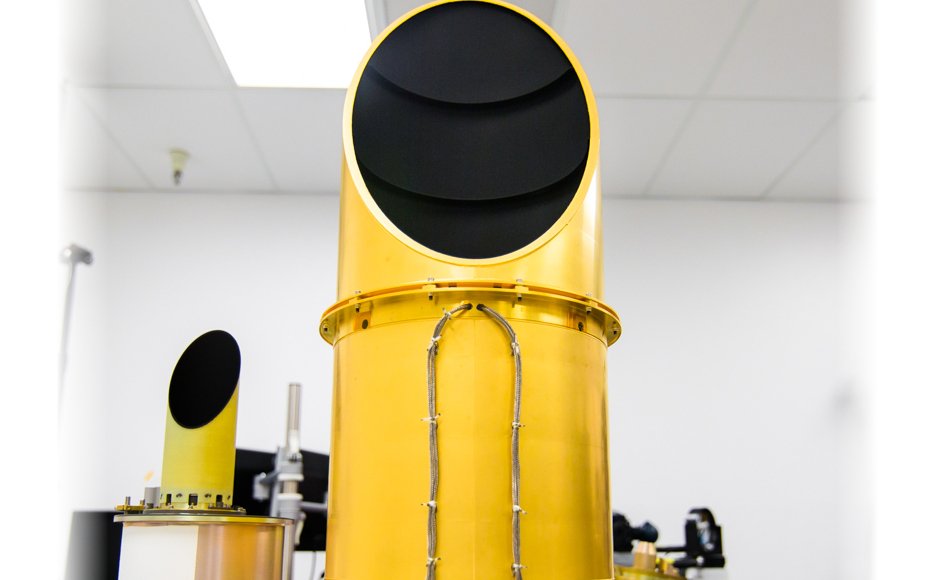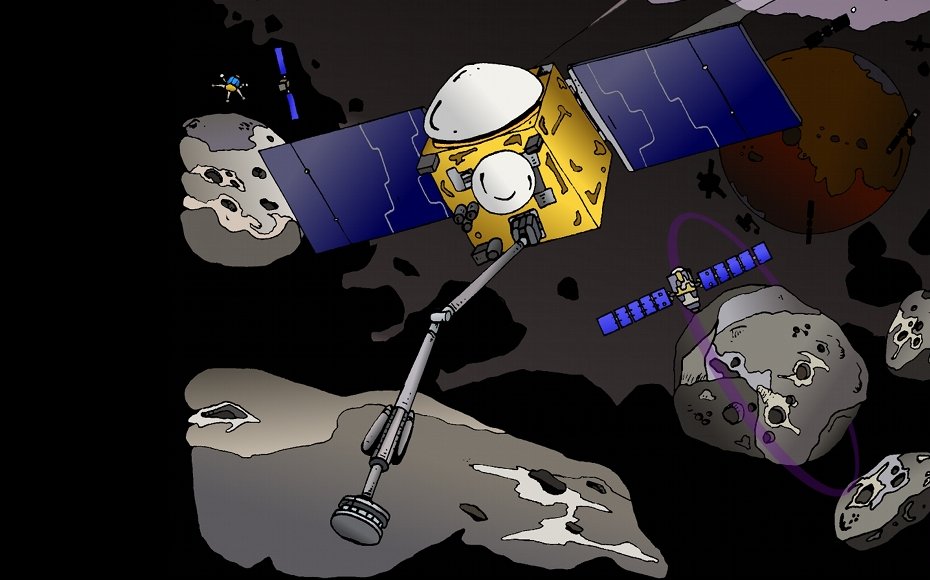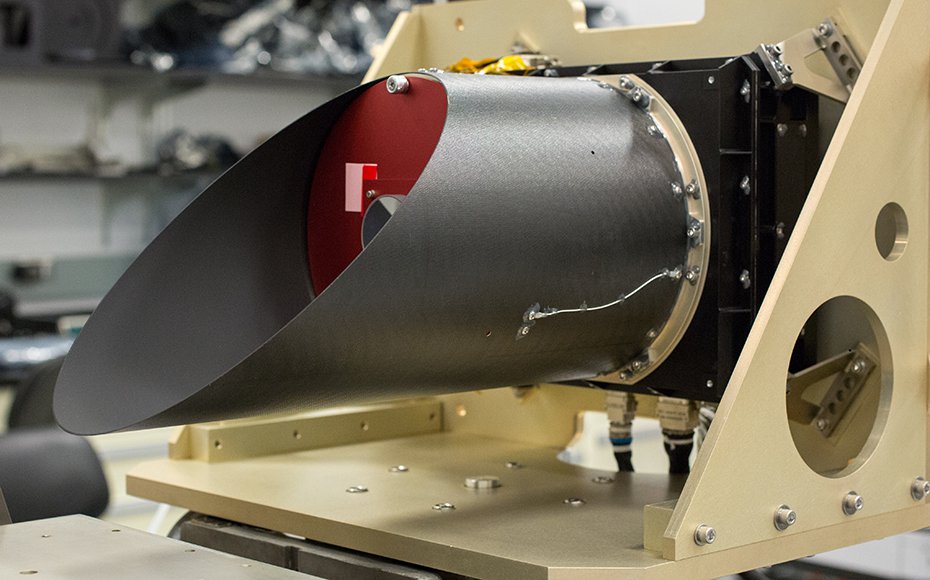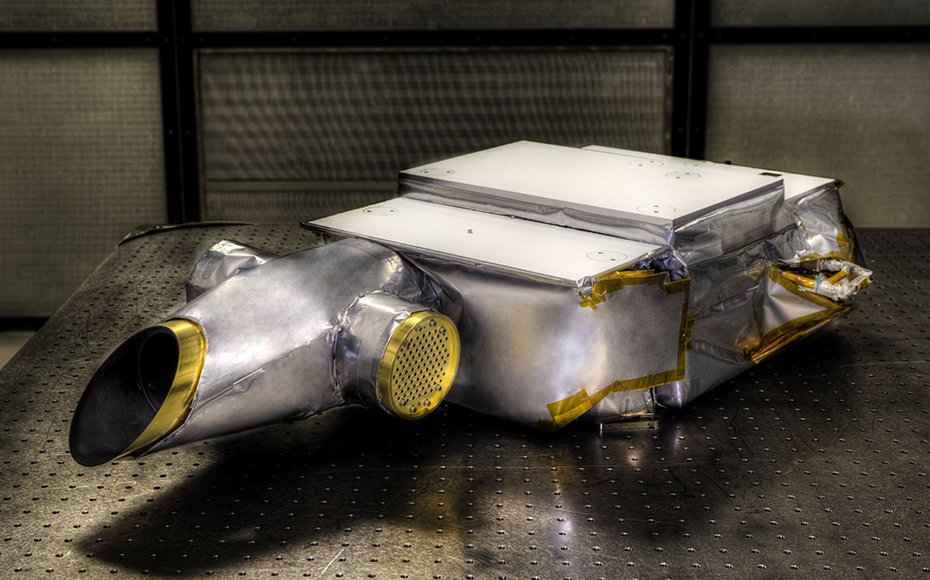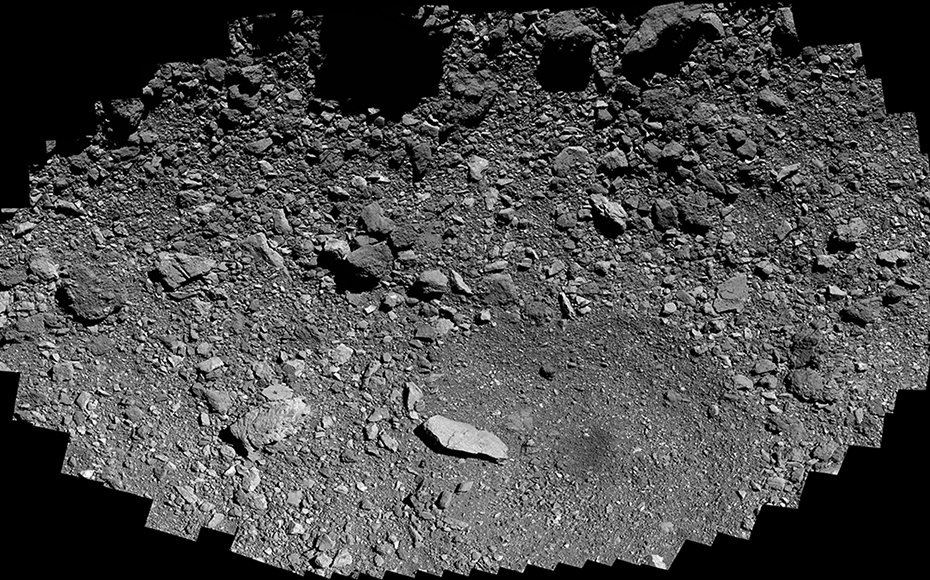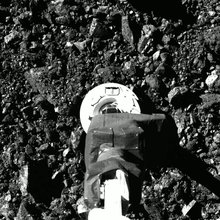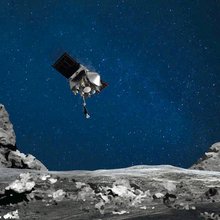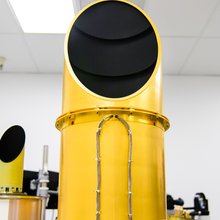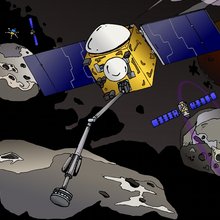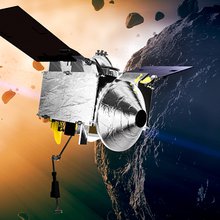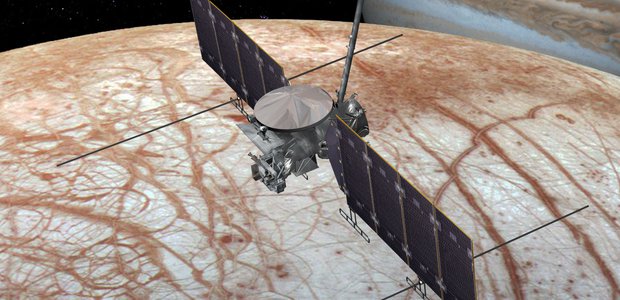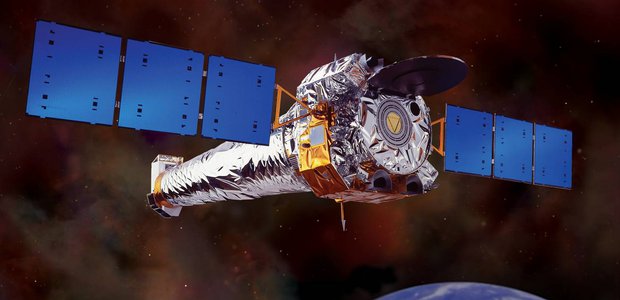- Launch Date September 08, 2016
- Arrival Date December 03, 2018
- Mission TypeOrbiter/Sample Return
- TargetAsteroid
Mission Overview
NASA’s Origins, Spectral Interpretation, Resource Identification, Security-Regolith Explorer (OSIRIS-REx) spacecraft is the first U.S. mission to return samples from an asteroid to Earth, addressing multiple NASA Solar System Exploration objectives. OSIRIS-REx launched from Cape Canaveral at 7:05 p.m. EDT on September 8, 2016. OSIRIS-REx completed its 1.2 billion-mile (2 billion-kilometer) journey to arrive at the asteroid Bennu on December 3, 2018. The spacecraft successfully collected and stowed samples from the asteroid in October of 2020 in preparation for its return to Earth.
Relevance to Astrobiology
As the leftover debris from the solar system formation process that began over four billion years ago, asteroids can teach us a lot about the history of the Sun and planets. OSIRIS-REx traveled to Bennu, a carbon-rich asteroid that records the earliest history of our Solar System, and is bringing a piece of it back to Earth. Bennu may contain the molecular precursors to the origin of life and the Earth’s oceans. Bennu is also a potentially hazardous asteroid that has a relatively high probability of impacting the Earth late in the 22nd century. OSIRIS-REx will determine Bennu’s physical and chemical properties, which could be critical for developing an impact mitigation mission in the future.
The Astrobiologists
Numerous astrobiologists supported by the NASA Astrobiology Program will be taking part in studying materials returned by the OSIRIS-REx mission.
The Astrobiology Analytical Laboratory (AAL) of the Goddard Center for Astrobiology (GCA) is dedicated to the study of organic compounds derived from past and future sample return missions, and is an active participant in the OSIRIS-REx mission. The GCA was a member of the NASA Astrobiology Institute (NAI) (CAN 7).
Dr. Scott Sandford, member of the former NAI Ames Research Center Team, plays a number of roles on the mission and will participate in the study of the returned samples, with an emphasis on the analyses of any organic materials they contain.
Directed & Edited by Mike Toillion / NASA Astrobiology Program

